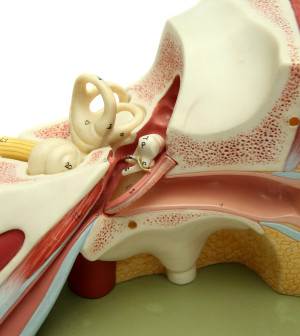- Could Your Grocery Store Meat Be Causing Recurring UTIs?
- Are You Making This Expensive Thermostat Error This Winter?
- Recognizing the Signs of Hypothyroidism
- 10 Strategies to Overcome Insomnia
- Could Artificial Sweeteners Be Aging the Brain Faster?
- Techniques for Soothing Your Nervous System
- Does the Water in Your House Smell Funny? Here’s Why
- Can a Daily Dose of Apple Cider Vinegar Actually Aid Weight Loss?
- 6 Health Beverages That Can Actually Spike Your Blood Sugar
- Treatment Options for Social Anxiety Disorder
Sharp Rise in ‘Meth’-Linked ER Visits in U.S., Study Shows


The number of methamphetamine-related visits to U.S. hospital emergency departments jumped from about 68,000 in 2007 to almost 103,000 in 2011, the latest year for which such data is available, a new federal government report finds.
The report, released Thursday by the Substance Abuse and Mental Health Services Administration (SAMHSA), “shows that methamphetamine use may be on the rise again, and we must do everything we can to address this serious public health problem,” Dr. H. Westley Clark, director of SAMHSA’s Center for Substance Abuse Treatment, said in an agency news release.
The report comes as discouraging news, because ER visits linked to the illegal drug had fallen significantly between 2005 and 2007.
However, cases began to rise again between 2009 and 2011, SAMHSA found, and between 2007 and 2011, there were sharp increases in the number of meth-related ER visits among people ages 25 to 34, as well as those 55 and older.
In 2011, 29 percent of meth-linked ER visits also involved the use of one other substance and a third of those visits involved the use of two or more other substances, SAMHSA said.
The top two substances users took along with meth in 2011 were marijuana (22 percent) and alcohol (16 percent).
“One important step is to use the hospital emergency department visit as a critical opportunity to talk to, and intervene with, people using this drug so that they can more fully understand its dangers and where they can turn to for help,” Clark added.
Meth is highly addictive and can lead to a number of physical and mental health issues, including dental problems, anxiety and confusion, insomnia, mood changes, and unsafe and violent behaviors, the agency said.
More information
The U.S. National Institute on Drug Abuse has more about methamphetamine.
Source: HealthDay
Copyright © 2026 HealthDay. All rights reserved.










